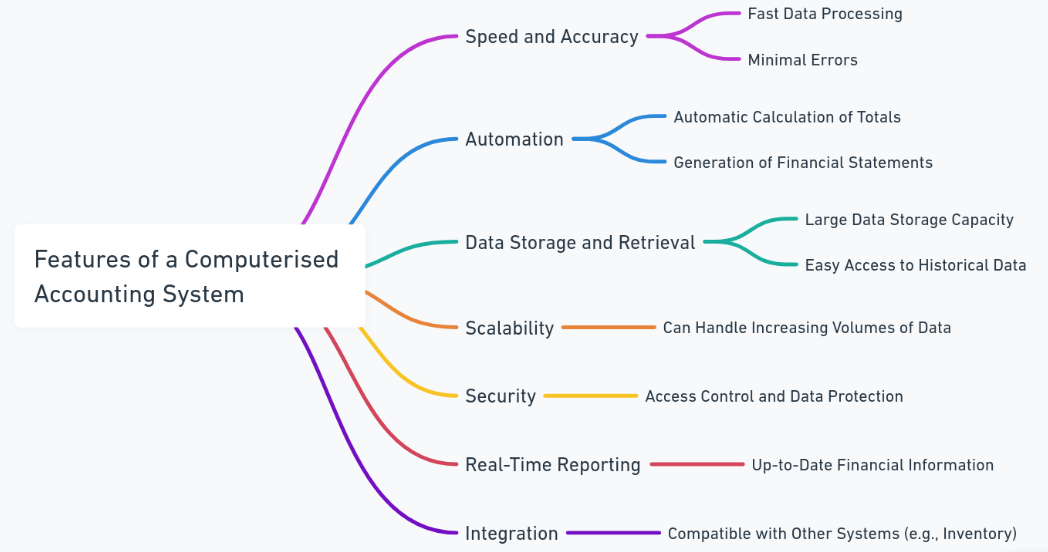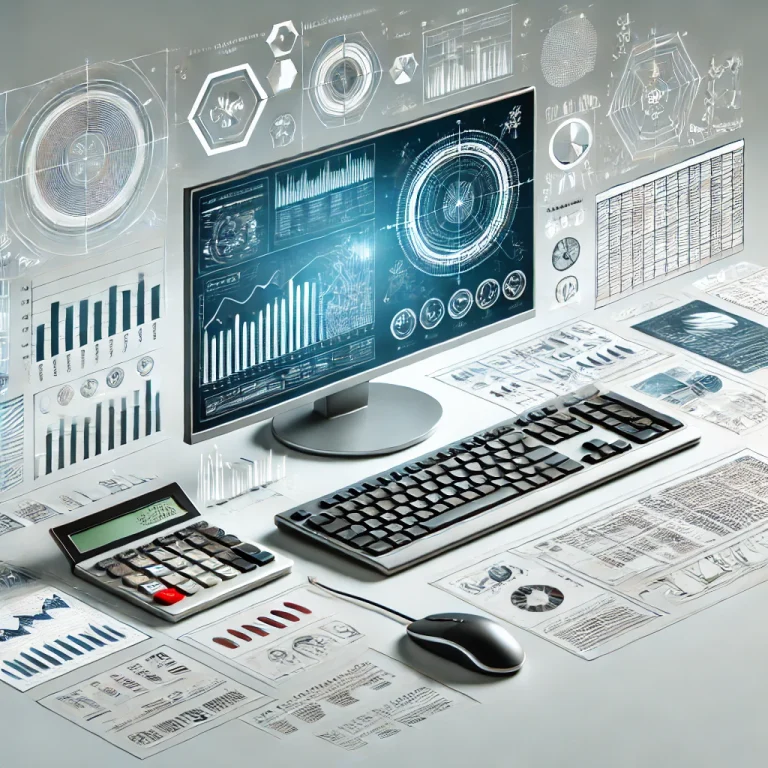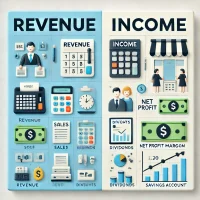In the current business world, a computerised accounting system is fundamental, where digital tools manage financial transactions and smooth out operations. This system replaces the old paper-based accounting method with digital software, enabling organizations to record, track, and report financial information in a more efficient manner. Advanced features reduce manual errors, improve data accuracy, and support financial analysis, which are indispensable to businesses of all sizes.
What Accounting Software Does?
Accounting software automates complex financial processes by streamlining data entry, transactions, and reporting. It serves to maintain the financial book of any business in a quick retrieval mode, easier calculation, and comprehensive financial reporting. Different departments are integrated into the modern accounting software that helps in sharing information between the teams, budget, and financial accuracy with the entire organization.
Features of a Computerised Accounting System
A computerised accounting system comes with a variety of features that enhance its functionality and usability. Here are the primary characteristics:
Data Accuracy and Integrity
Computerised accounting systems significantly reduce errors through automated calculations, data validation, and real-time updates. This enhances data integrity, making financial records more reliable.
Automation
These systems automate repetitive accounting tasks like invoicing, payroll processing, and bank reconciliations, allowing accountants to focus on analysis and strategic planning.
Real-Time Data Processing
Unlike traditional systems that require batch processing, computerized systems allow real-time data input and retrieval, providing instant access to financial information.
Multi-User Access
Computerised accounting software often supports multiple users, enabling different departments to access the system simultaneously. Role-based access control ensures data security while allowing teams to collaborate effectively.
Data Storage and Security
Data in computerised accounting systems is stored securely on cloud servers or internal databases, with backup and recovery options to protect against data loss.
Financial Reporting and Analysis
Advanced reporting tools in computerised systems allow for customized financial reports. These reports aid in decision-making by providing insights into financial performance, expenses, revenue, and other metrics.

Advantages of Computerised Accounting System
The advantages of using a computerised accounting system are numerous, contributing to the system’s popularity and widespread adoption:
- Increased Efficiency: Automated entry of data, fast processing of all calculations, and quicker production of reports save time and lighten up the workload.
- Accuracy Increased: Automated checks and computations reduce human error in inputting data, thereby achieving accuracy in the figures obtained for analysis and compliance.
- Facilitated Access to Financial Data: Computerized systems provide easy access to all financial information, which benefits audits, decision-making, and day-to-day management.
- Easy Customization and Scalability: Most computerized accounting software allows for customization to suit different business needs, hence easy scalability as the organization expands.
- Better Financial Control: The real-time updates and thorough tracking allow businesses to exercise better control over finances. Improved budget management and cash flow are also the end results.
- Integration with Other Business Functions: The more it connects with other kinds of business applications. For example, its organization can easily connect with CRM and inventory management tools to form a single platform for all business operations.
Disadvantages of Computerised Accounting System
While highly beneficial, computerised accounting systems also come with certain limitations:
- High Initial Setup Cost: Advanced accounting software costs a lot of money to purchase and implement, mainly for small businesses. Additional costs might include training and IT infrastructure.
- Cybersecurity Threats: The electronic storage of financial information makes it prone to hacking and cyber-attacks. Proper cybersecurity measures are needed to secure sensitive information.
- Dependence on Technology: Heavy dependence on technology can result in problems such as failure of power, system crashes, or technical faults in such a computerized accounting system.
- Training Requirements: High training requirements for the installation of these systems, which again takes time and money. Updates require continuous training as well.
- Complexity in Small Businesses: For small-scale businesses with simple accounting functions, computerized systems only add complexity to the otherwise basic accounting system, which then makes manual or simpler digital modes more feasible.
Difference Between Manual and Computerised Accounting Systems
While manual systems have served businesses for centuries, computerized accounting systems offer greater speed, accuracy, and flexibility, making them the preferred choice for modern businesses.
| Criteria | Manual Accounting | Computerised Accounting |
|---|---|---|
| Accuracy | Prone to errors | High accuracy due to automation |
| Speed | Time-consuming | Faster processing |
| Cost | Low setup cost | High initial cost |
| Scalability | Limited | Highly scalable |
| Data Security | Paper-based, less secure | Digital, vulnerable to cyber risks |
| Data Access | Limited and time-consuming | Quick and easy access |
In today’s dynamic business environment, adopting a computerised accounting system offers significant advantages for companies aiming for efficiency, accuracy, and financial control. Although the initial cost and technical requirements can be challenging, the benefits of real-time processing, improved data integrity, and automated reporting make it a worthwhile investment for most businesses.
Computerised Accounting System FAQs
What is a computerised accounting system?
A computerised accounting system is a software that automates financial tasks, such as bookkeeping, data entry, and report generation, to streamline accounting processes.
What are the main advantages of a computerised accounting system?
Key advantages include enhanced accuracy, real-time data processing, data security, and scalability.
Are there any disadvantages to using a computerised accounting system?
Yes, disadvantages include high setup costs, dependence on technology, cybersecurity risks, and the need for employee training.
Can a small business benefit from a computerised accounting system?
Yes, though small businesses with simple needs may find basic software or manual systems sufficient. However, growing businesses benefit greatly from the scalability and efficiency of a computerised system.
What accounting software should I choose for my business?
The choice depends on business size, complexity of transactions, budget, and specific requirements.


